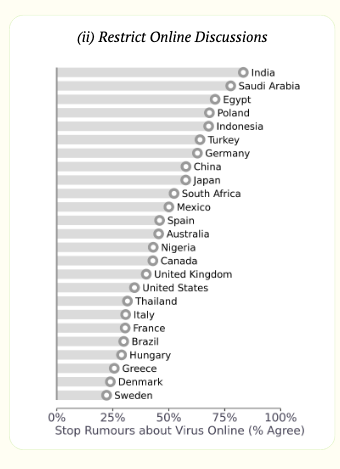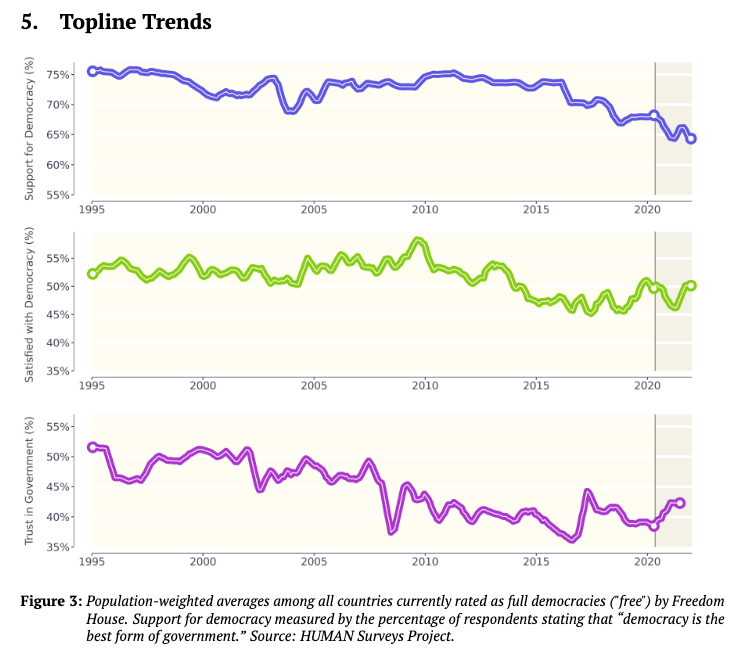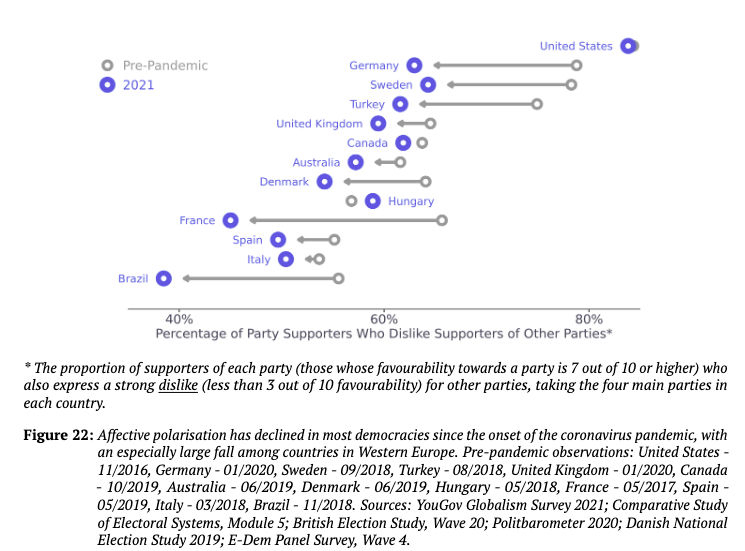I’ve just finished up a rough draft of my The Right to Defy Criminal Demands article (6 years in the making), and I thought I’d serialize it here, minus most of the footnotes (which you can see in the full PDF). I’d love to hear people’s reactions and recommendations, since there’s still plenty of time to edit it. You can also be previous posts (and any future posts, as they come up), here.
[* * *]
Let’s return to the Introduction and to our Danielle, whom Craig is trying to force to do something through threat of criminal attack. Danielle, like all of us, “ordinarily has a duty to exercise reasonable care when [her] conduct creates a risk of physical harm.” That includes a duty not to unreasonably increase the risk of criminal attack: “The conduct of a defendant can lack reasonable care insofar as it foreseeably combines with or permits the improper conduct of the plaintiff or a third party.” Thus, for instance, Danielle could be sued for negligence if she hires someone who foreseeably criminally attacks her customers, or if she lends a dangerous weapon to someone who foreseeably uses it to attack someone.
Say then that Danielle is aware that Craig is likely to violently attack her if she does X (is publicly seen with a new lover, continues to perform abortions, or sells a blasphemous magazine) or refuses to do Y (hand over the property that Craig is demanding). And say that bystander Paul is then injured in such an attack. The Paul v. Danielle lawsuit could easily be seen as raising a jury question as to whether Danielle is liable:
- Danielle’s conduct created a risk of physical harm. Though the conduct was not dangerous by itself, it became dangerous because of the threat of Craig’s attack. And even if Danielle is being faulted for not acting, for instance by not turning over property to a robber, she may still have had a duty to prevent the risk of physical harm, for instance to customers of her business.
- This risk is foreseeable, if Craig has made such threats, has engaged in such attacks in the past, or is just known to Danielle to be a person who would be enraged by her conduct (e.g., an estranged husband whom she knows to be violently jealous).
- Danielle’s conduct would be the but-for cause of Paul’s injury, since, had she complied with Craig’s demands, it’s more likely than not that Paul wouldn’t have been injured.
- It should therefore be up to the jury to decide whether Danielle acted reasonably in doing X or not doing Y, balancing the costs to her of complying with the demands against the benefits to Paul of avoiding Craig’s violent attack.
Consider some concrete cases, which I lay out below.
[1.] Touchette v. Ganal
Mabel Ganal had an affair with David Touchette, and soon left her husband, Orlando Ganal, to move in with her parents. Orlando then broke into the parents’ home, murdered the parents, and injured Mabel and their son. He drove to the Touchette family’s home, blocked the doors and set the house on fire, murdering four Touchette family members and severely injuring a fifth. (David Touchette himself wasn’t there.) Orlando then set fire to his ex-employer’s premises, though no-one was injured there.[1]
Touchette’s sister, Wendy Touchette, then sued on behalf of her murdered relatives. Among others, she sued Mabel, claiming that Mabel had acted negligently in provoking Orlando, and the Hawaii Supreme Court agreed that the case could go forward:
Mabel had a duty to refrain from [her own] conduct that would create an unreasonable risk of harm to another through [Orlando] Ganal’s conduct…. [A]ppellant’s complaint against Mabel in the present case alleges affirmative conduct, or alleged “misfeasance” on the part of Mabel, in that “defendant Mabel Ganal initiated and maintained a course of conduct which involved taunting and humiliating defendant Orlando T. Ganal, Sr. by flaunting her extra marital love affair with David Touchette” (emphasis added), … [which] “… caused defendant Orlando T. Ganal, Sr. to suffer severe and extreme emotional and mental distress and depression,” thereby implicating the duty [to exercise reasonable care when one’s conduct creates a risk of harm to others] ….
The alleged “taunting and humiliating” included, in addition to “flaunting” the affair, telling Orlando that Touchette was a better lover than he had been. (The court noted that Mabel wasn’t being held liable for the omission of failing to prevent her husband’s crime, but for her affirmative acts in provoking the crime.) The case later settled for a six-figure amount, paid by Mabel’s homeowner’s insurance. Some years later, a Florida trial court case followed Touchette in similar factual circumstances. And the result fits the logic of modern tort law, as laid about above.[2]
To be sure, Touchette doesn’t fit perfectly into the pattern I discuss in the Introduction (which is why my Touchette-based hypothetical alters a few elements): There is no allegation that Orlando had expressly demanded that Mabel not taunt him. Still, the case strikes me as quite analogous. Presumably Mabel knew that her jealous husband wouldn’t want to hear about her new relationship and his own inadequacies, even if he had never expressly demanded that she not “taunt” him about such things. And the Touchette decision holds that people in Mabel’s shoes have a duty (as part of their duty to avoid creating unreasonable risks of harm to others) to avoid such behavior that fails to comply with such unstated demands backed by the threat of violence.[3]
More broadly, under the logic of Touchette, a demand such as the one I hypothesize in the Introduction would even more clearly create a duty to comply. It would just make even more foreseeable the possible harm to third parties if the demand is defied.
Of course, this decision simply left the matter to the jury; it didn’t hold that the jury had to hold Mabel liable. Nonetheless, such denials of motions to dismiss will often lead to the case settling because of the risk of liability (and the expense of litigation)—that is what happened in Touchette. And they send a normative message about duty: The duty to take reasonable care may sometimes include a duty to obey criminals’ demands, even if it’s up to each jury to decide what was reasonable under the facts of the particular case.
[2.] Hurn v. Greenway
Carrie Randall-Evans was married to Jeffrey Evans, but the marriage wasn’t going well: She was frightened of Jeffrey, who often insulted and threatened her, and she was staying at a friend’s house to avoid him. At the friend’s, she met Simone Greenway, and the two became close.
Some time later, Carrie and Greenway were at Greenway’s house, and Jeffrey (with whom Carrie had continued to have a relationship) was there as well, as was Bill Anthony, a friend of Greenway’s.
… Carrie and Greenway sat at one end of the couch and held hands; Carrie appeared afraid but did not discuss why. Greenway said that Carrie sat next to her “like she wanted [Greenway] to protect her.” Jeffrey asked Carrie and Greenway, “[W]hat would you girls do if somebody came in that door right now, after you?” Carrie and Greenway gave each other a high five and said, “[W]e’d kick his ass.”
Carrie and Greenway began … dancing. While dancing, Greenway and Carrie kissed and touched each other. Greenway acknowledged that they were “laughing and joking and making fun out of [Jeffrey]” and that she was teasing Jeffrey “on purpose,” with the intent of punishing him “because he was a jealous man.” Greenway said that while she was laughing at Jeffrey she was attempting to express to Carrie the nonverbal message that “you don’t have to be afraid…. [T]his my domain, you don’t have to be afraid here.” While being teased, Jeffrey “had no emotion, showed none whatsoever. He was stone cold, no emotion.”
Shortly after that, Jeffrey shot Greenway (who survived) and Anthony and Carrie, who died.
David Hurn, the father of Carrie’s two children, sued on their behalf; he sued both Jeffrey’s estate (which settled for $800,000, but was unable to pay it) and Greenway. His claim against Greenway was that “Greenway was negligent when she made sexual advances towards Carrie Randall-Evans while her husband Jeffrey Evans was in the home.”
Now obviously Greenway and Carrie were doing something risky, especially given that they knew that Jeffrey had threatened Carrie before, and Carrie was afraid of him. Greenway had a legal duty to act reasonably when creating a risk to others; and but for her actions, Jeffrey likely wouldn’t have attacked Carrie (or at least wouldn’t have attacked her as violently). Under the reasoning of Touchette, there likely would be a jury question as to whether Greenway acted unreasonably.
But the Alaska Supreme Court rejected the Hawaii Supreme Court’s views. First, it concluded that “Jeffrey’s violence was not foreseeable,” even though “Greenway knew that Jeffrey had threatened Carrie with physical harm in the past; Carrie was afraid that Jeffrey would kill her; Jeffrey was a jealous man; on the night of the murder Jeffrey sometimes wore a ‘stone cold expression’ that betrayed no emotion; and prior to Greenway’s dance, he had issued a veiled threat: ‘What would you girls do if someone came in that door right now, after you?'” “It is not clear,” the court held, “that homicide could ever be the foreseeable result of mere teasing, and Greenway could not foresee such violence here.”
But the court didn’t stop there, perhaps in part because foreseeability is usually a question for the jury; rather, it held Simone’s duty should be limited, as a matter of law:
Hurn asks us to reduce domestic violence in this state by imposing a duty to “refrain from teasing or bullying someone known to be potentially violent.” But we refuse to give victims the duty to prevent their own abuse and then hold them liable when they fail….
And if Greenway is liable for taunting an abusive husband, it follows that victims themselves may be liable for provoking their partners if the result is harm to a third party…. . [Such liability is] particularly troubling where, as here, the “provocation” is an act of resistance. [Footnote: The sparring, dancing, and teasing at issue were a direct response to Jeffrey’s not-so-veiled threat to Carrie and Greenway’s physical safety …. While they were sparring and dancing and laughing at Jeffrey, Greenway was expressing to Carrie: “[T]his is my domain, you don’t have to be afraid here.”] We reject the idea that victims are responsible for the violence they endure in the home, and we will not blame them for their otherwise reasonable actions simply because those actions foreseeably result in violence….[4]
It seems to me this logic is correct, and can fit negligence law in two possible ways.
First, one could say that, as a matter of law, Greenway’s conduct was not unreasonable. Perhaps nonviolent “resistance” to “abuse” is never unreasonable, maybe because the dignitary burden of having to avoid such resistance would be too great. [5]
Second, one could conclude that there ought to be a limitation to the normal duty “to exercise reasonable care when [your] conduct creates a risk of physical harm”; to quote the Restatement (Third) of Torts,
In exceptional cases, when an articulated countervailing principle or policy warrants denying or limiting liability in a particular class of cases, a court may decide that the defendant has no duty or that the ordinary duty of reasonable care requires modification.
Perhaps this is one of those exceptional cases, a right to defy criminals—a right not to have adjust one’s behavior to obey a criminal’s implicit demands—making up this “countervailing principle or policy.”
[3.] Rojas v. Diaz
Patricia Diaz was fleeing her abusive husband, David Alvarez, “who had physically and emotionally abused Patricia and threatened to kill her.” Patricia’s aunt, Celia Diaz, let Patricia and Patricia’s sister Veronica Diaz stay with her, though she “made it clear they could only stay at her house for three days because she was concerned Alvarez might go after Patricia, and she ‘didn’t want any problems.'” Indeed, on the third day, David Alvarez came to the house and killed four people who were there (but not Patricia and Veronica, who had left that morning). One of the murdered was Manuel Rojas, who had done some gardening for Celia earlier that day and had come back for a drink of water.
Rojas’s family sued Celia for negligently failing to warn Rojas of the danger posed by Alvarez (so that, perhaps, Rojas might have skipped coming to mow the lawn while Veronica was there and the threat from Alvarez was most serious). The Court of Appeal held that this didn’t state a claim, because the attack by Alvarez wasn’t sufficiently foreseeable:
Patricia had communicated to Diaz that she was afraid Alvarez would harm her brothers; Diaz thought Alvarez would come after Patricia at Diaz’s house, so Diaz limited Patricia’s stay to only three days; Diaz was aware of Alvarez’s propensity for violence and that he had threatened to kill Patricia. While these facts suggest that Patricia was in danger of continued physical abuse at the hands of Alvarez, they do not logically point to the events that took place on September 29, 1996, during which Alvarez showed up at Diaz’s home with a female accomplice who proceeded to help him rob, stab and shoot the occupants of Diaz’s house.
And this might have reflected the California rule that “third party criminal acts [should be analyzed] differently from ordinary negligence, and require us to apply a heightened sense of foreseeability before we can hold a defendant liable for the criminal acts of third parties.”
But a similar scenario can easily arise when an attack is indeed foreseeable, even under a heightened standard, and when the alleged negligence wasn’t just a failure to warn but the decision to harbor a stalking victim. Say, for instance, that
- Alvarez had actually tried to shoot Patricia in the past (so a subsequent attempt to kill was much more foreseeable);
- Celia had decided to let Patricia stay indefinitely;
- Alvarez came to Celia’s house, shot at Patricia, and injured a tenant or neighbor of Celia’s; and
- the injured party sued Celia, claiming that letting Patricia stay at her house unreasonably increased the risk to tenants and neighbors.
This would squarely raise the problem with which this Article deals.
[1] I generally refer to the parties by their last names, except when two parties share a last name, in which case I use the first name to avoid ambiguity.
[2] Note that the court expressly rejected the view that Mabel had a duty to control Orlando as her husband. Touchette, 922 P.2d at 355. Its rationale rested entirely on Mabel’s having engaged in “conduct that would create an unreasonable risk of harm to another through Ganal’s conduct,” id., by allegedly “flaunting her extra marital love affair with David Touchette” and taunting and humiliating [Orlando] with respect to that affair,” id. at 358.
[3] The same would apply in situations involving property damage to third parties (e.g., arson, vandalism, and the like) that is factually caused by a defendant’s provoking plaintiff; negligently causing property damage is of course also actionable under the negligence tort.
[4] The court mentioned Touchette briefly, and distinguished it on the grounds that “the allegations in that case”—”that the wife taunted and humiliated the husband and caused him ‘to suffer severe and extreme emotional and mental distress and depression’—”were more severe than the uncontested facts in this one.” But it seems to me that the logic of Hurn would justify the opposite result from Touchette even on Touchette‘s facts.
[5] For another example of resistance, though one that has fortunately not led to a murder, see Letitia Stein & Colleen Jenkins, Mohammad Cartoonist Says U.S. Police Killing of Two Gunmen ‘Justice’, Reuters, May 4, 2015 (“For the cartoonist whose portrait of Mohammad won a Texas contest, the police killing of two gunmen outside the meeting place was justice…. [Bosch] Fawstin’s winning entry depicts a sword-wielding Prophet in a turban shouting, ‘You can’t draw me.’ In reply, a cartoon bubble portrays the artist, his hand grasping a pencil, as saying, ‘That’s why I draw you.'”); cf. John F. Trent, Cartoonist and Graphic Novelist Bosch Fawstin Faces Numerous Death Threats After Drawing Muhammed, Bounding Into Comics, Sept. 10, 2018, https://boundingintocomics.com/2018/09/10/cartoonist-and-graphic-novelist-bosch-fawstin-faces-numerous-death-threats-after-drawing-muhammed/; 2005 Will Eisner Comic Industry Awards, http://www.hahnlibrary.net/comics/awards/eisner05.php (noting that Fawstin’s earlier work had been nominated for a prominent award). Fawstin’s defiance may stem in part from his being “an ex-Muslim atheist.” Robert L. Jones, Bosch Fawstin: Infidel Activist, Atlas Society, Mar. 1, 2018, https://www.atlassociety.org/post/bosch-fawstin-infidel-artist. Cf. Stop the Cartoonist Bosch Fawstin Who Draws Prophet Muhammad (Peace Be Upon Him), Change.org, https://www.change.org/p/kevin-systrom-stop-the-cartoonist-bosch-fawstin-who-draws-prophet-muhammad-peace-be-upon-him (petition with almost 50,000 signatures demanding that Instagram remove Fawstin’s account).
The post The Right to Defy Criminal Demands: Negligence and the Estranged Spouse's Criminal Demands appeared first on Reason.com.
from Latest – Reason.com https://ift.tt/3KpvFGA
via IFTTT









